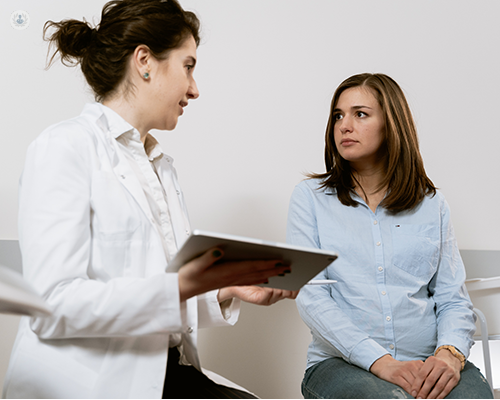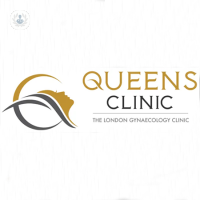Gynaecological examination
Dr Deepa Janga - Obstetrics & gynaecology
Created on: 03-18-2016
Updated on: 03-30-2023
Edited by: Carlota Pano
What is a gynaecological examination?
A gynaecological examination is done to assess the overall health of the female reproductive system. During the exam, the gynaecologist will look at the external and internal reproductive organs, as well as at the breasts, to determine whether there are any problems or conditions present.

What does a gynaecological examination involve?
During a gynaecological examination, you will be lying down with your knees up and spread wide apart. The gynaecologist will inspect your vulva and vagina. With both a physical examination and a transvaginal ultrasound, the doctor will also check your uterus and ovaries.
It is very common to also do a smear test during the examination, to determine whether there are precancerous cells in your cervix. The sample taken is sent for examination in a laboratory with results shared, usually in a couple of weeks after the appointment.
The last part of the examination consists of a breast exam, where the gynaecologist checks for lumps or abnormalities. You will also be taught how to do a breast self-exam, so that you can do them at home periodically. The whole examination does not last more than 20 to 30 minutes.
What is a gynaecological examination for?
A gynaecological examination is helpful to assess the general state of health of the female reproductive system, as well as to identify potential infections or problems. The very first examination should be done after the first menstrual cycle or after you become sexually active, even if there are no obvious problems or red flags.
Should you have any itching, a burning sensation, abnormal vaginal discharge, as well as irregular menstrual periods or abnormalities or lumps on your breasts, you should go for a gynaecological examination as soon as possible.
Even if you do not have any issues, you should go for a check-up at least once every three years (or more often if you have a family history of uterus or breast cancer).
How can I prepare for a gynaecological examination?
You do not need to do anything before a gynaecological examination. However, you should schedule your examination away from your menstruations and remember to empty your bladder before the visit to avoid any potential discomfort.
What does it feel like during the examination?
A gynaecological examination is not painful at all. The feeling you will have during the internal examination is like that of using a tampon.
What would a “bad” result mean?
There are many potential anomalies that could be found during an examination. By going for your check-up, the gynaecologist can identify potential tumours, conditions, infections or even small irritations, and determine the best treatment for you.
















